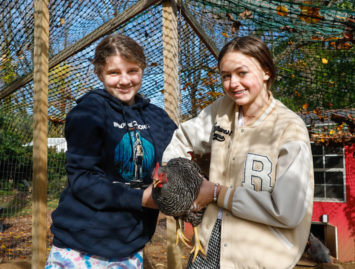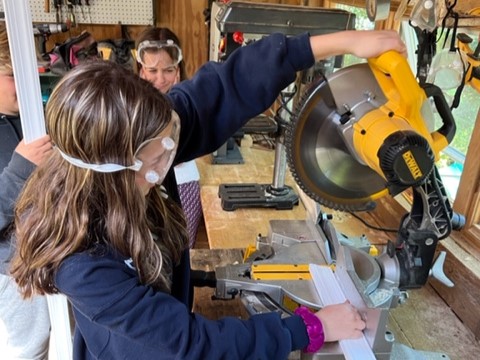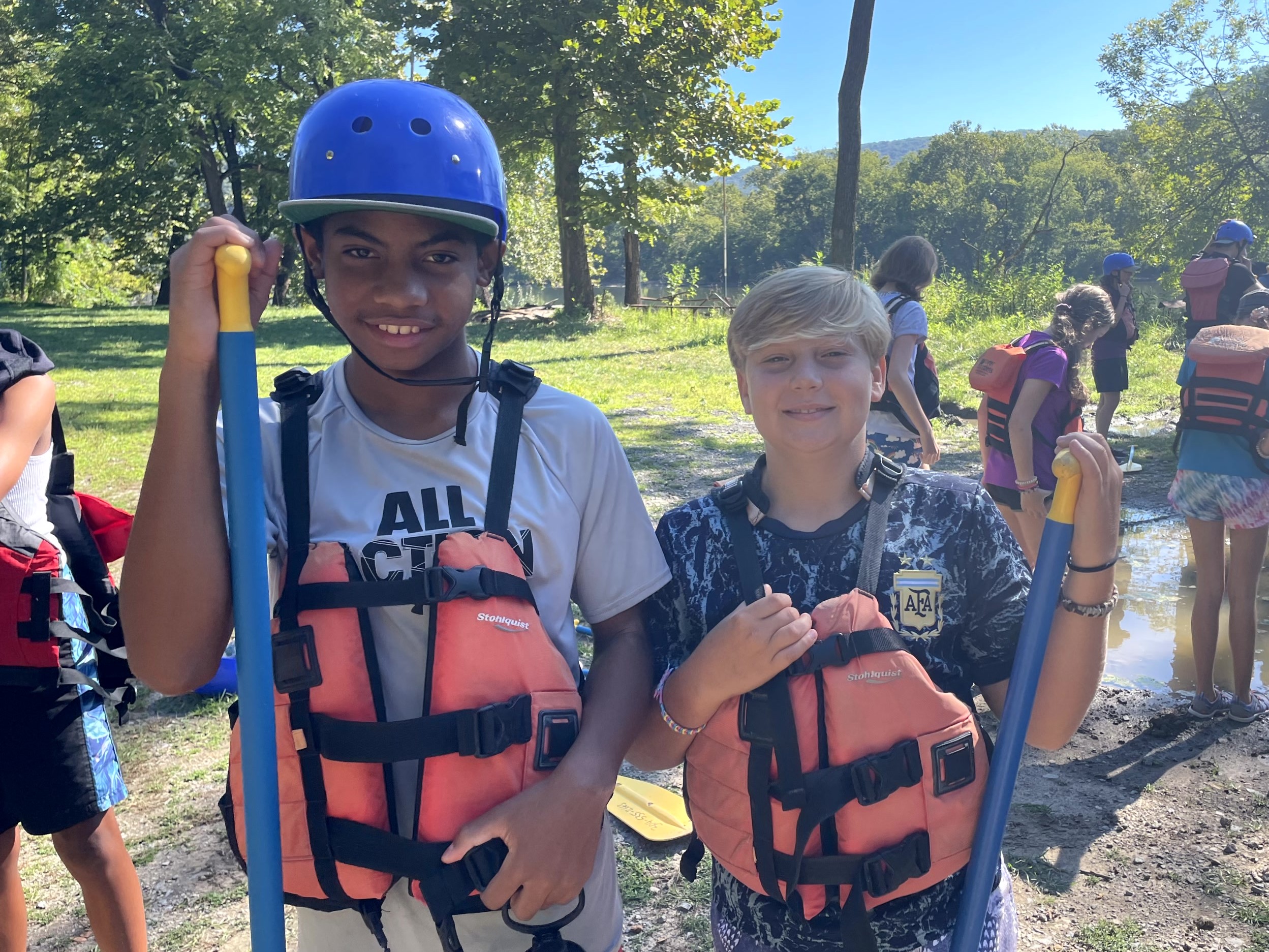


The Adolescent Program Community
The Montessori adolescent program, for students between the ages of 12 and 15 years old, is designed to meet the needs of early teens in the midst of becoming young adults. The program makes learning relevant, incorporating project-based learning in nearly all of the courses of study and disciplinary subjects offered. As a result, students are engaged in their learning and in the community endeavors as a whole. It’s a place where a student’s actions and interests can and do contribute to the betterment of the school.
Dr. Maria Montessori called the teenager “the social newborn” and our approach to the developmental needs of the age group support her claim. CMS uses a land and farm-based environment to link curricular subjects to real-world applications. For instance, students study the sciences such as botany, zoology, physics, and chemistry through four and five week projects that focus on raising chickens, beekeeping, organic gardening, food preservation, creating simple machines, or oyster farming, for example. Furthermore, the role of the adult is placed squarely in the education of the adolescent with a number of teachers supporting a small student body. This isn’t because we seek small teacher to student ratios for academic performance; rather, it is because we believe that teens, as apprenticing adults, need to work side by side with well-rounded adults who believe in their abilities and potential. After all, adolescence is our last best chance to engage students in their development before they reach adulthood. Having a number of teachers for a small number of students also provides our students a number of classes to choose from, placing them more in control of their educational track based on their own interests and thus bolstering personal engagement.
CMS offers curricular areas that include science, history, mathematics, English language arts, and Spanish. Additionally, we offer physical and creative expressions that include classes such as, but not limited to, hiking, basketball, soccer, ultimate Frisbee, martial arts, jewelry making, woodworking, song writing, stand-up comedy, drawing and painting, and movie-making. We also offer skill-based workshop electives, Socratic seminars, book groups, culinary arts, and a focus on community building such as daily and weekly chores, community council meetings, and managerial roles. It’s a dynamic and empowering experience!
Most classes are composed of multi-age groups with an emphasis on differentiated assignments that possess the same key concepts but that varies in the degree of difficulty and sophistication. The three period lesson is the model used to foster learning: the first period entails new knowledge being introduced by the teacher, the second period allows the student the time and activity to explore and discover concepts (really, it is the time period in which learning happens), and the third period is when a student’s knowledge is tested and demonstrated as having been mastered. Additional philosophical underpinnings of the program include longer block periods in areas of the sciences and humanities, the role of choice in nearly every class or project, and the role of ownership through personal projects.
Adolescent Program At A Glance
Location: Upper Campus
Enrollment: 18-25 students
Ages served: 12-14 years
Staff: 3 full-time, 3 part-time faculty
Daily Schedule:
8:15-8:30 AM – Arrival window
8:15-12:00 PM – Morning Classes
12:00-12:30 PM – Lunch
12:30-1:00 PM – Physical Expression
1:00-3:15 PM – Afternoon Classes
3:15-3:30 PM – Dismissal window
Program Director – Erin Foley
Faculty – Colin Cooley & Grant Hughes
Specialists – Kristi Funk (Spanish), Stacy Conlin (Mathematics), Brad Dawson (Woodworking)

